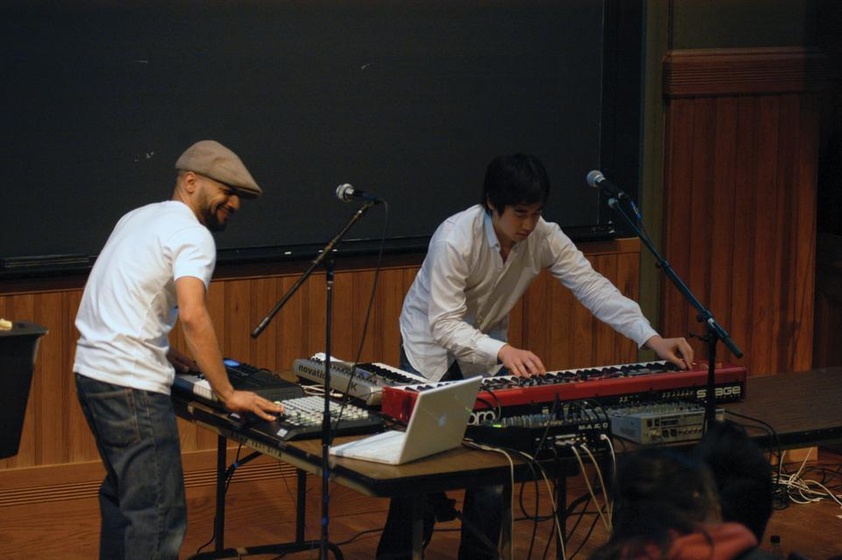For David “Dave” W. Liang ’00, the phrase “East meets West” doesn’t only apply to fusion cuisine. The term can also refer to his musical style, which he features in his performance group The Shanghai Restoration Project (SRP), making its first Harvard appearance in Sever 113 last Saturday.
According to Liang, the “restoration” in the title refers to a cultural restoration of the Shanghai jazz of the 1930s, which consisted of Chinese lyrics sung over Western jazz tunes. Liang seeks out these old pieces of music and remixes them with his own beats and harmonics, adding a modern flair to these long-lost songs.
“They’re pretty contemporary, very much like electronica, very new age, with Eastern elements,” said Joselyn A. Lai ’13, an Education/Political Co-Chair for the Harvard-Radcliffe Asian American Association, which hosted the performance.
Audience member Plas T. James II ’13 also gave a positive review. “This guy has this funky kind of feeling, feels like you can get down and really go at it,” he said.
Since its conception, SRP has enjoyed widespread popularity. BBC and NBC used Liang’s music during the 2008 Beijing Olympics; it has also been featured in Louis Vuitton ads as well as a recent episode of “The L Word.”
Liang cited his family and Harvard as major influences in the creation of SRP. Though he trained as a classical and jazz pianist, he said that he was inspired by his grandfather, who played the Chinese flute. While at Harvard, Liang gained composing experience by writing the music to a Hasty Pudding production. Additionally, while performing with the Krokodiloes during their 1997 China tour, Liang was first introduced to Shanghainese jazz. This initial interest in the music stayed with him, even during a three-year sidetrack working as a consultant.
“I didn’t know what I was going to do. I wanted to work in the [music] industry, but there’s so much risk,” said Liang. “And when you leave Harvard, it’s much more daunting because you see your classmates on the fast track to medicine or law school.” However, Liang finally took that risk and started producing with Bad Boy Records before founding SRP.
Liang said he hopes to inspire students with his successes. “The first thing to take away [from the performance] is that it is possible to go to Harvard and pursue a less traditional path,” he said.


